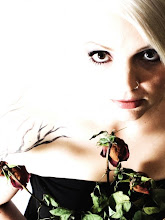I think that sometimes Truth is found in its purest form in the books that we call fiction. I think that somehow the deepest Knowings of the universe cannot be grasped in factual descriptions and school books, but by immersing ourselves in a story which in itself catches our attention with the ripples of action on the surface but contains within it the fullness of a Truth so profound we can only sense it by the way it makes our skin tingle. Even this immersion into parallel universes of fiction are touched upon in this book:
“If you have never wept bitter tears because a wonderful story has come to an end and you must take your leave of the characters with whom you have shared so many adventures, whom you have loved and admired, for whom you have hoped and feared, and without whose company life seems empty and meaningless.
If such things have not been part of your own experience, you probably won't understand what Bastian did next.”
When I first started writing this blog post, I thought it would be a short post about the beauty of this book, and how it slightly touches the recent findings of cognitive science and language.
I was wrong.
This book is in itself such a deep, clear portrayal of how our mind and inner world of concepts are constructed. And in this structuring, our whole experience, and ultimately our own world of being - both in the physical and mental - is created.
To explain this a bit further, I'll use a poignant quote from the book:
“If you stop to think about it, you’ll have to admit that all the stories in the world consist essentially of twenty-six letters. The letters are always the same, only the arrangement varies. From letters words are formed, from words sentences, from sentences chapters, and from chapters stories.”
Is it not fascinating that Noam Chomsky - one of the pioneers in cognitive science and revolutionaries of how we think about language - coined the same thought in 1991?:
— Noam Chomsky.
...which in turn can be traced back to the forefathers of the Universal Grammar theories — Antoine Arnauld and Claude Lancelot (in the 1660's!!!):
‘It remains for us to examine the spiritual element of speech ... this marvelous invention of composing from twenty-five or thirty sounds an infinite variety of words, which, although not having any resemblance in themselves to that which passes through our minds, nevertheless do not fail to reveal to others all of the secrets of the mind, and to make intelligible to others who cannot penetrate into the mind all that we conceive and all of the diverse movements of our souls.’
In the world of linguistic theory, this is called Digital infinity; or more accurately the infinite use of finite means.
Is it any wonder I love literature?


